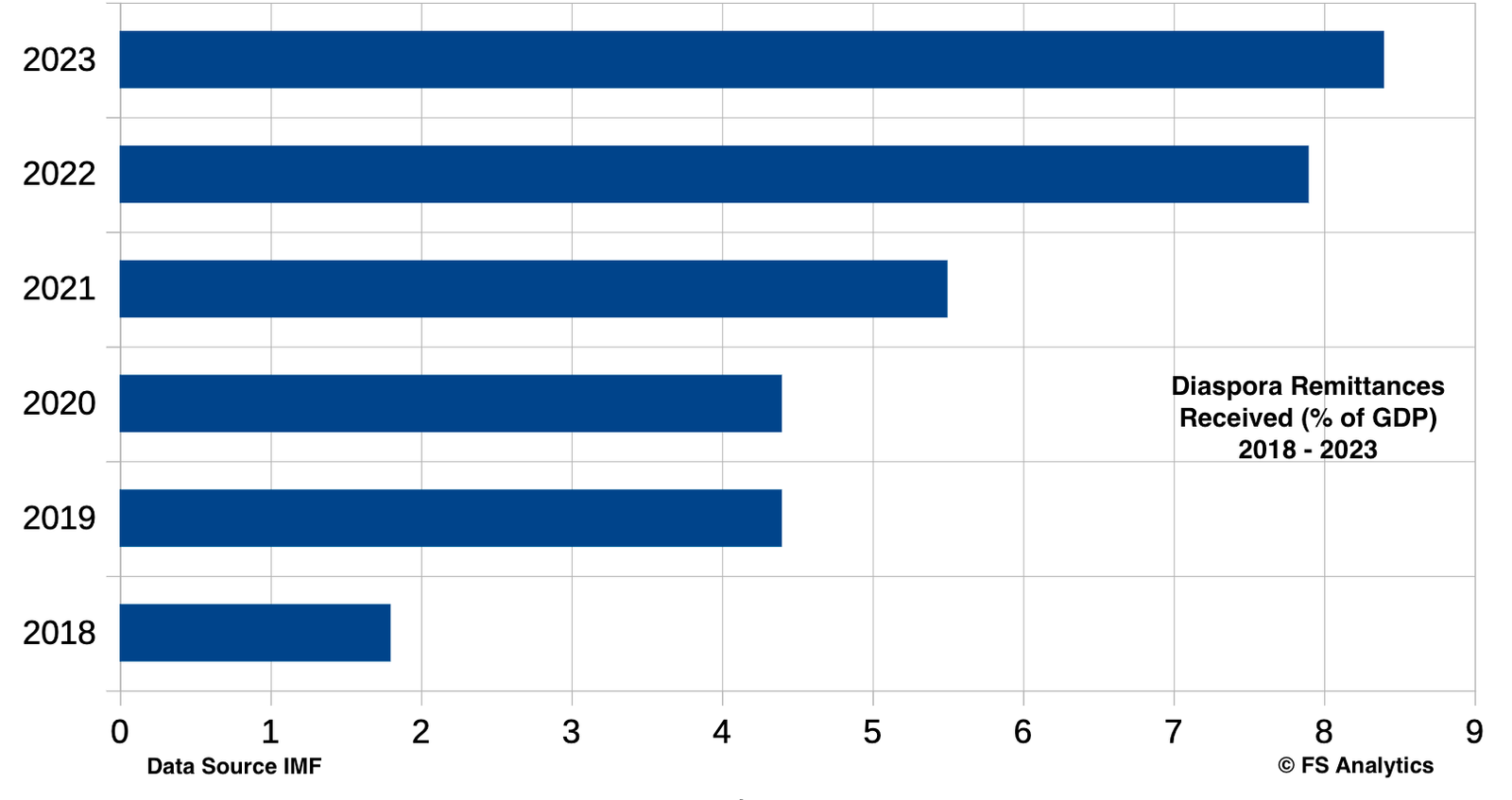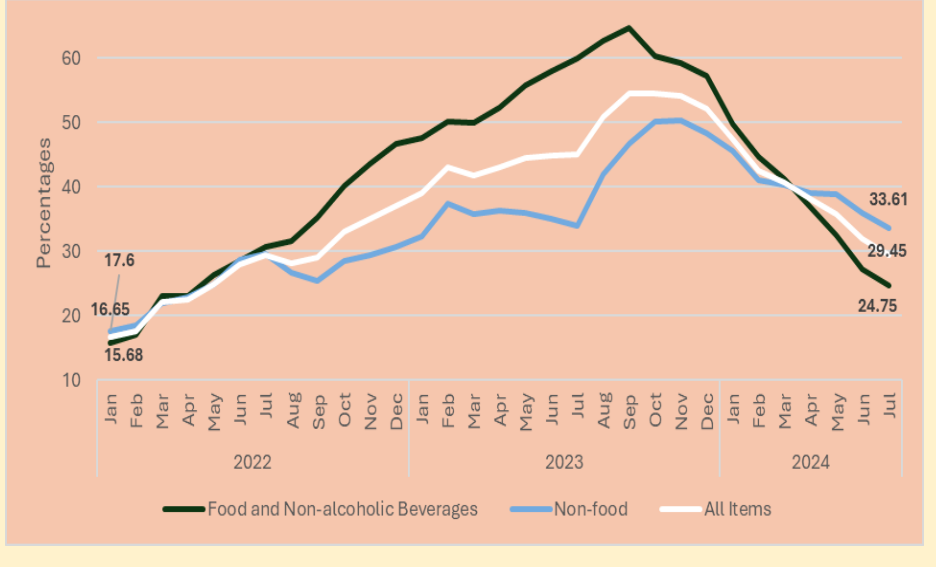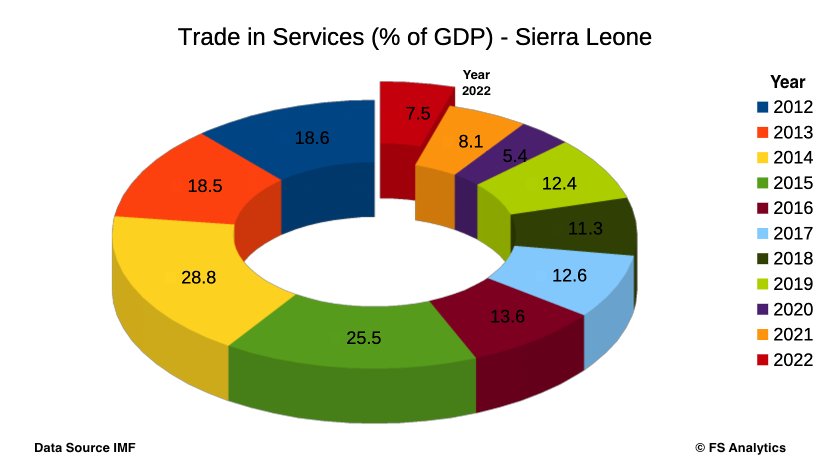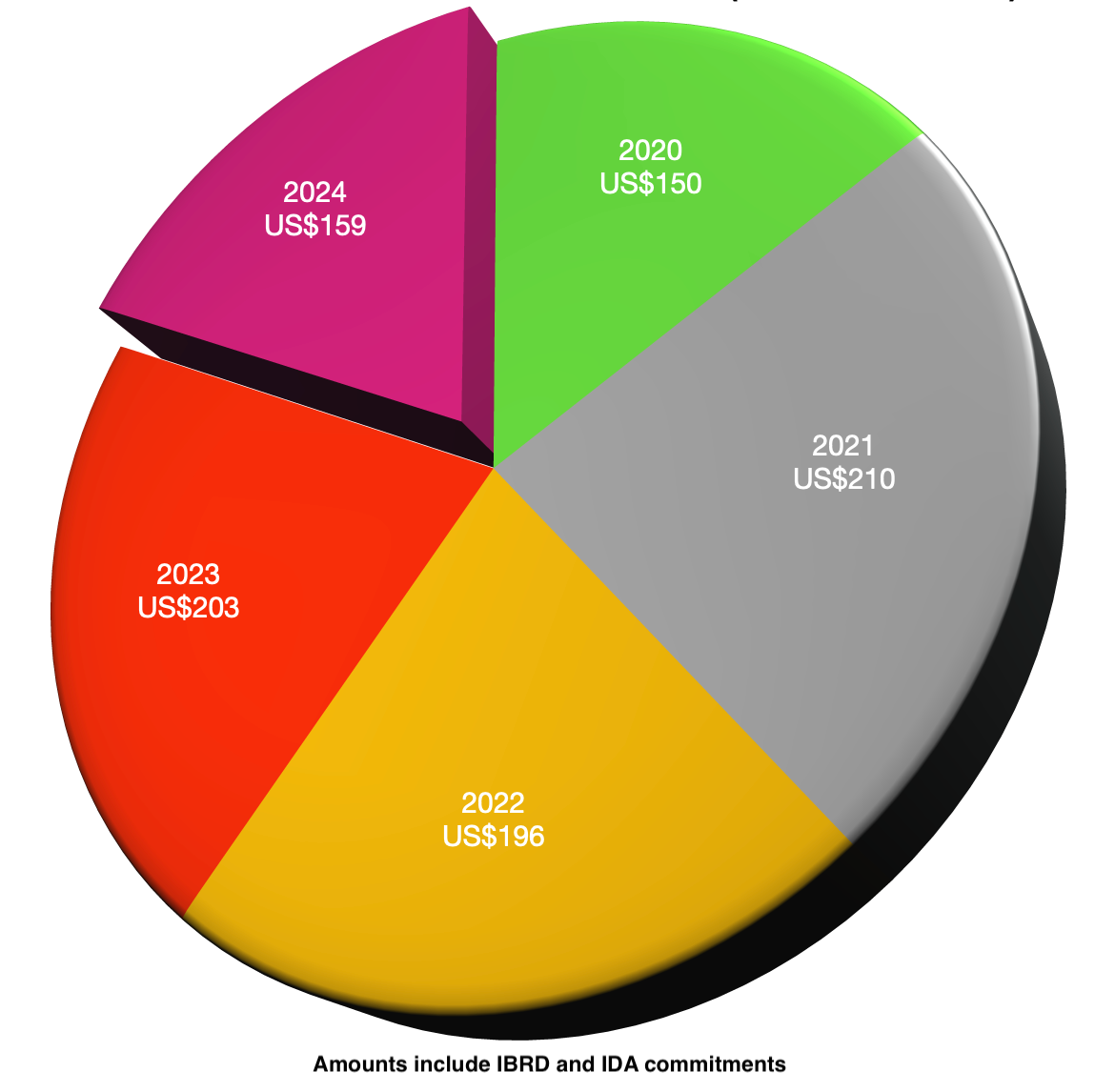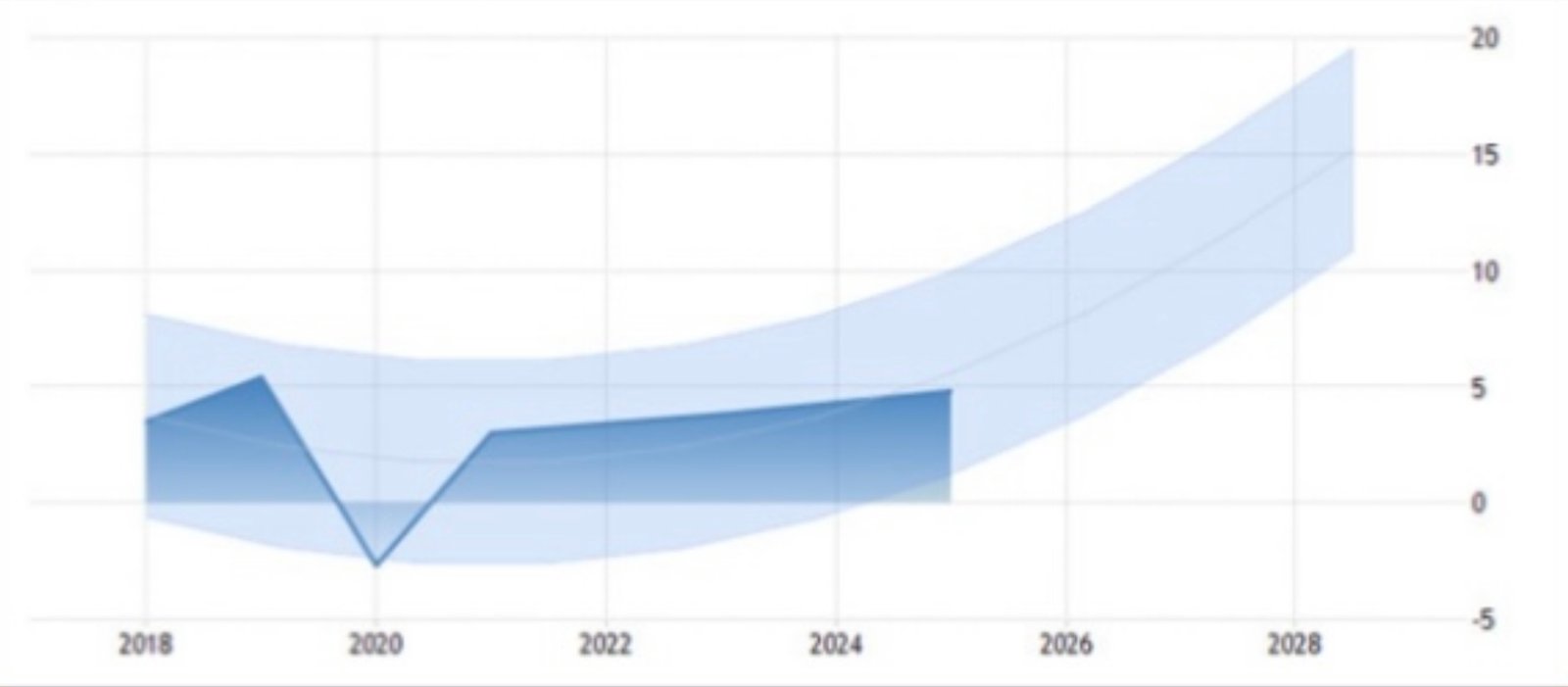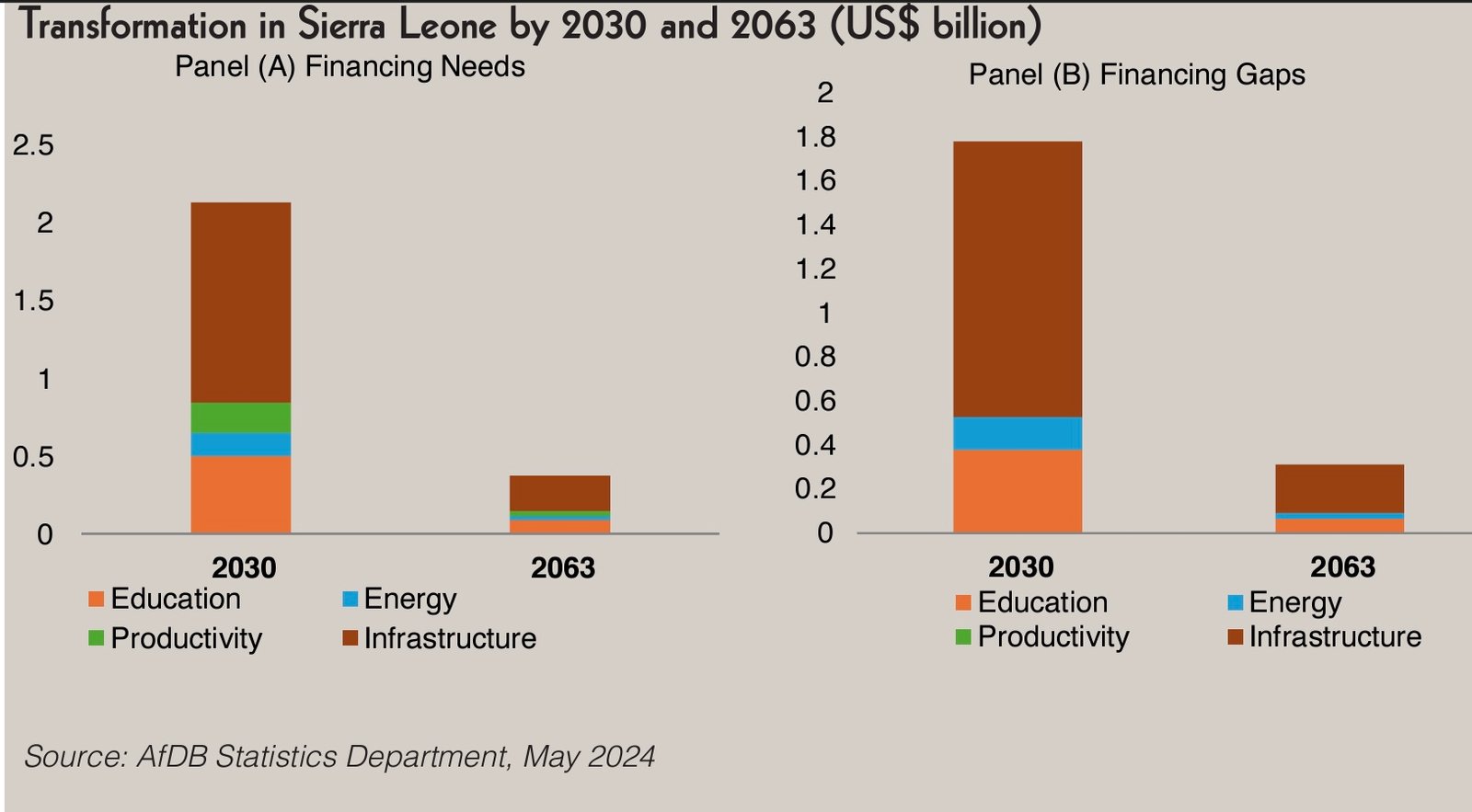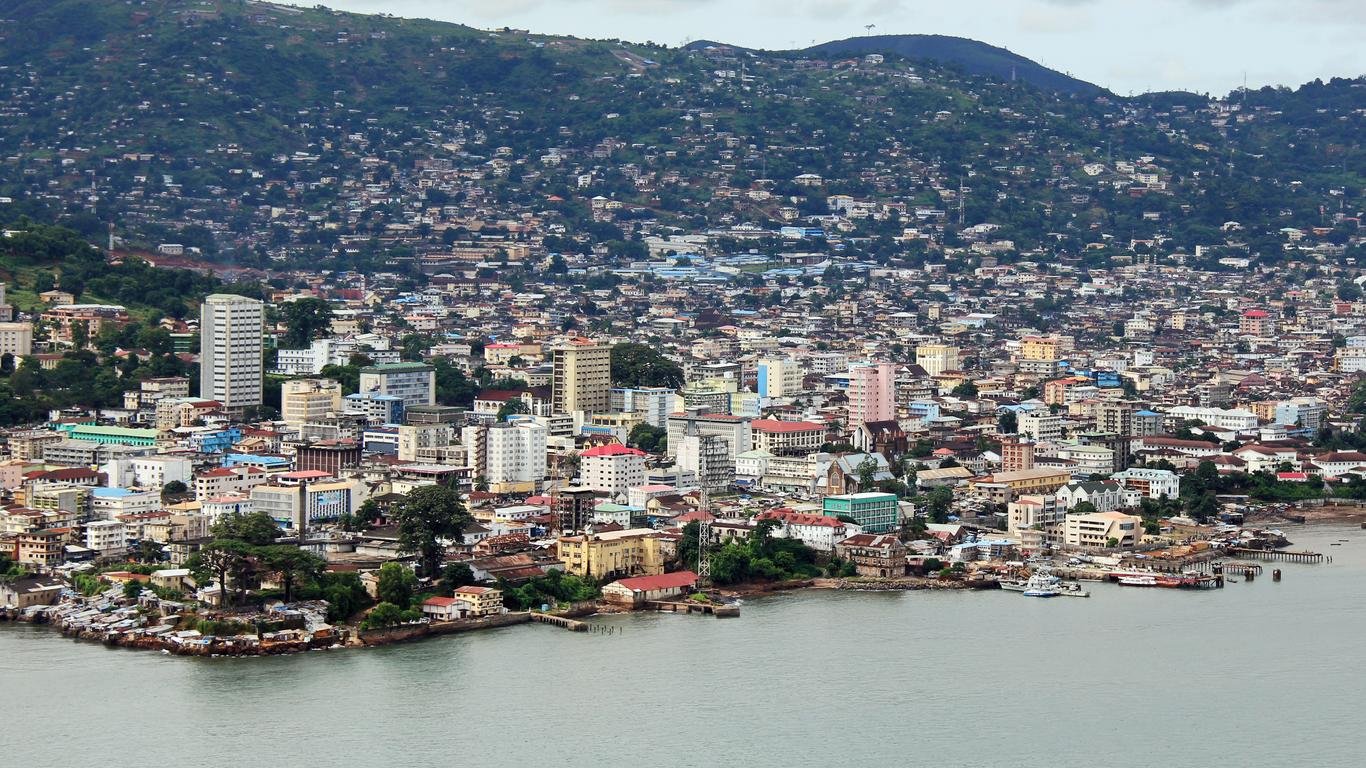2024: The Year That Was Economically
 Statistics SL Trends in Inflation rates for Food, Non-food and All items (YoY) 2022 – November 2024
Statistics SL Trends in Inflation rates for Food, Non-food and All items (YoY) 2022 – November 2024
In fiscal 2024, the economic outlook shows cautious optimism amid recovery. While the growth rate is gradually improving, addressing structural challenges, enhancing governance, and increased investment in human capital is essential for sustainable development.
As the year draws to a close, the economy continues to navigate through recovery efforts, external challenges, and structural reforms. Gross Domestic Product (GDP) growth for 2024 peaked 4.2%, a slight increase from 3.5% for fiscal 2023.
This was attributed to improved agricultural output, a recovering mining sector, and diversification efforts in other industries such as tourism and services. However, the economy remains fragile, with national and global economic pressures amidst ongoing efforts for stability between the New Leones versus the Dollar rate at $1 to NLe22,68 according to the Central Bank of Sierra Leone (BSL).
Agriculture remains the backbone of the economy, accounting for about 60% of GDP and employing roughly 50% of the workforce. The sector has seen a rebound due to favourable weather conditions and government support programs aimed at improving food security and productivity. The Agricultural Ministry reports that rice production, a staple food, has increased by 15% in 2024 compared to 2023.
Considering the mining sector, particularly diamonds and gold, is important to the economy recovery. The International Monetary Fund (IMF) reports that mining exports have surged by 10% in 2024, bolstered by rising global commodity prices. Despite this, the country faces challenges related to environmental regulations that need addressing to ensure sustainable growth.
The services sector has grown, driven by telecommunications, banking, and tourism. Reports from the World Bank show that the tourism industry has begun to recover post-pandemic, with tourist arrivals increasing by 20 per cent in 2024, aided by the Ministry’s initiatives that promoted Sierra Leone as a serious tourist destination.
Inflation remains a pressing concern, albeit showing signs of stabilization. As per the Central Bank of Sierra Leone, the annual inflation rate was recorded around 15% in December 2024, a sharp decrease from the figure recorded in December 2023. The decrease happened because of improved supply chains and reduced food prices. Cost of living however remains high, particularly for essential goods, a development that has strained household budgets.
The government of Sierra Leone has implemented a series of fiscal reforms aimed at improving revenue collection and expenditure management. The IMF's Consultation Report indicates that the fiscal deficit was projected to decrease from 5.5% of GDP in 2023 to 4.0% in 2024. This improvement reflects increased tax revenues and better management of public expenditure.
The country's Trade Balance remains negative, with imports outpacing exports. Trade deficit is estimated to close the year at $1.1 billion, primarily due to high import bills for fuel and machinery. The World Bank emphasizes the need for export diversification to reduce dependency on a limited range of commodities.
Foreign direct investment (FDI) has shown modest recovery, with inflows reaching approximately $200 million in 2024, supported by investments in infrastructure and mining projects. The country's public debt has risen, currently estimated at 65% of GDP, raising concerns about sustainability. The World Bank projects that addressing debt vulnerabilities is critical for fiscal stability.
Load shedding and inadequate power supply hinder industrial growth and deter investments. The government has initiated reforms in the energy sector aimed at increasing capacity and reliability. Vulnerability to climate-related shocks pose significant risks to agriculture and food security. The government, supported by international partners, is focusing on resilience-building strategies.
Continued collaboration with international institutions is vital in shaping policies that foster resilience and economic diversification, balancing growth ambitions with the need for comprehensive reforms to secure a prosperous future in 2025.
01-01-2025


